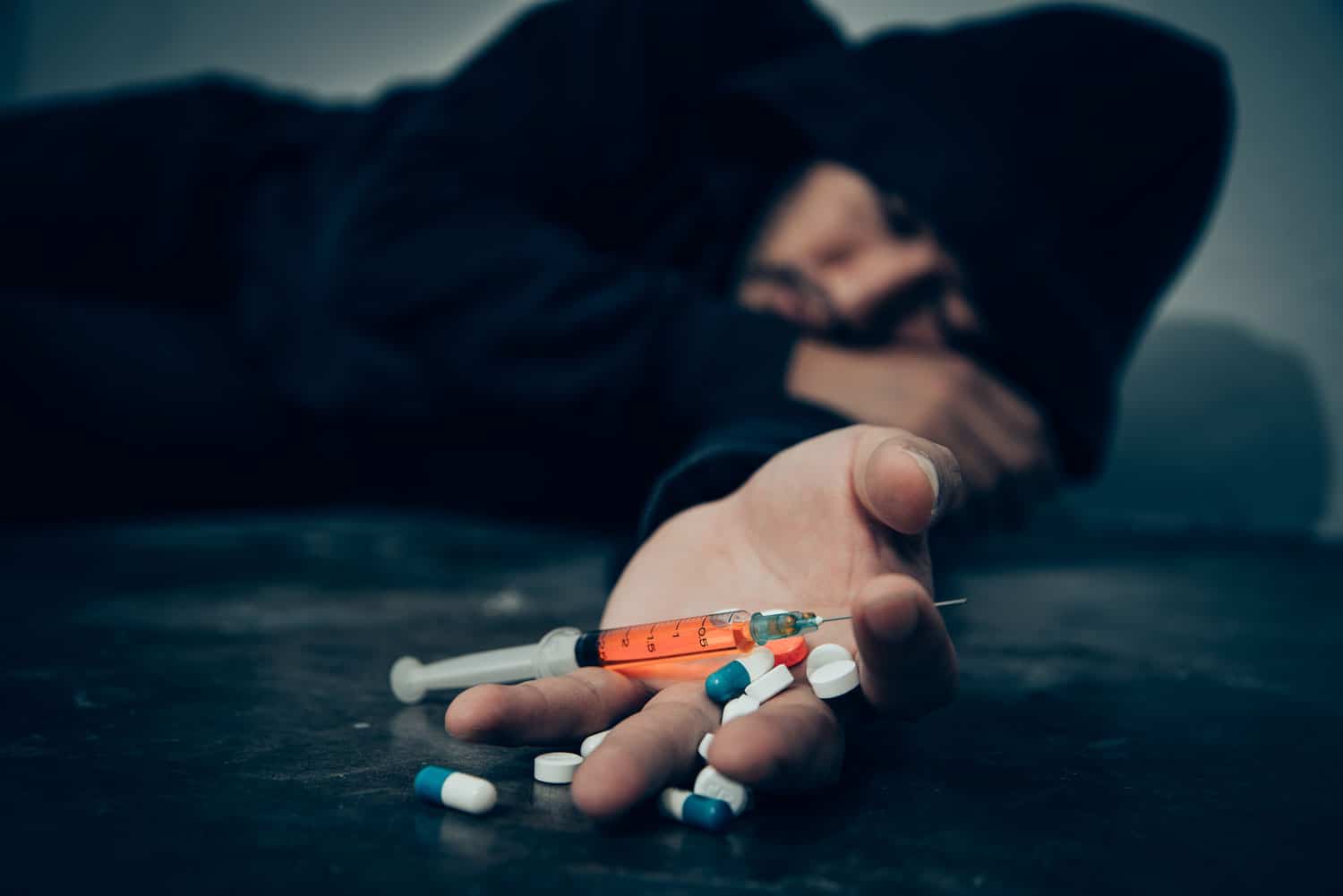Overcoming an alcohol addiction is a steady, step-by-step process. Giving yourself time at each stage – and understanding that recovery may have some setbacks – can help you have realistic, productive expectations about how you’ll beat a dependency.
For those struggling with alcohol dependency, regaining sobriety often does not come quickly. Just as it took time for an addiction to develop, the process of overcoming this addiction and restoring good health is long. Researchers have identified six key stages in the journey to recovery as a way to help those moving away from addiction to visualise where they are in the process. These are: pre-contemplation, contemplation, preparation, action, maintenance and transcendence.
Whether you are personally experiencing dependency, or you love someone who is, it is important to remember that recovery is often not a linear journey. It is very common to linger for a while at one stage, shift back and forth between stages, or to relapse and begin the process again. It is important to manage your expectations about the speed at which recovery will occur, giving yourself or your loved one the time they need to fully integrate into each stage. Accepting this and developing a community of support to encourage and guide recovery are key elements of making it ultimately successful and sustainable.
1. Pre-Contemplation: ‘I’m a social drinker’
During the pre-contemplation phase, a person struggling with their alcohol use will be in deep denial about the seriousness of their problem, even if they are showing obvious signs of dependency. Symptoms of alcohol addiction can include:
- Shakiness
- Nausea
- Bloating
- Sweating
- Weight gain or loss
- Changes in skin complexion
People in pre-contemplation will be defensive about their drinking and try to rationalise it; comparing themselves favorably to others with drinking habits, minimising it by saying they only drink socially or after work, or by blaming it on stress. In reality, at this stage alcohol use is not only affecting their physical health, but possibly causing financial strain, creating problems in personal or professional relationships, or resulting in legal issues.
Despite the negative effects of alcohol dependency, people in this stage are generally resistant to treatment. It is not uncommon for those who end up in treatment, such as by court order, to relapse. However, friends and loved ones can play an important role in helping guide reflection at this time, going through pros and cons of drinking and aiding acceptance that a problem exists.
2. Contemplation: ‘I don’t know what to do about my drinking’
Contemplation occurs when a person acknowledges that their drinking has become a problem, but hasn’t quite come to terms with how to go about addressing it. Emotionally this can be a turbulent time, as denial gives way to shame, guilt, and depression. A person may try to stop or cut back on their drinking on their own, and will typically begin to be more receptive to information about overcoming dependency. Conversations with supportive friends or family can be extremely helpful as a person begins to process their addiction and what to do.
3. Preparation: ‘I need help’
Once a person has become committed to the change that they need to make, they have entered the preparation stage. They may still be drinking, but making small positive steps towards more significant action. They will also be telling friends and family about their intention to seek treatment.
Though the excitement of this breakthrough may drive an urge to rush someone into treatment when they enter this stage, it is actually most important to put this new energy into detailing a plan of action and figuring out what the best strategy is for recovery. This could include researching different types of lifestyle changes, identifying treatment options, and setting goals. Going through this process will ensure that they are fully prepared to embark on the journey of treatment, and set them up for a more sustainable recovery.
4. Action: ‘This is hard to do, but I’m starting to feel better’
The action stage is when a person stops drinking, physically and mentally committing to their recovery. For many who have an alcohol dependency, they need to go through a period of alcohol detoxification, or detox. The physical withdrawal from alcohol can have medically significant effects on the body, and it is recommended that this process be taken under the care of treatment professionals.
Some who give up alcohol also feel an acute sense of loss, and may begin to move through the grieving process. This is due to the major role that alcohol has played in emotional support and as a coping mechanism. In treatment however, people learn new healthy ways to cope with stress, anger, or sadness, which helps to eliminate the emotional need for alcohol. The clarity of sobriety can also bring attention back to old hobbies or new interests, bringing elements of discovery and excitement to the challenges of redefining life without alcohol.
5. Maintenance: ‘Practice makes perfect’
The maintenance stage is where a person will be actively developing healthy habits in their daily lives. The new coping mechanisms that they have learned about in the action phase will be practised regularly here as a person settles into a sober lifestyle. Though there still may be an urge to drink, generally people during this stage are able to manage it, and this urge is likely balanced by a newfound feeling of freedom.
The incorporation of new, healthy habits such as eating well and exercising will further improve both physical and mental health, and aid in the body’s recovery from alcohol dependency. A person may experience remarkable emotional highs during this stage, but should be prepared for dips in mood as well as ongoing healing works to balance and restore emotions to a normal range. A relapse at this stage is possible, but this doesn’t signal a failure to recover, just a need to further practise and ingrain new habits and coping mechanisms.
6. Transcendence: ‘I got this’
The last stage in the recovery journey is transcendence, when the urge to drink has long passed and the healthy habits that were once new are now deeply embedded and routine. People in this stage may look back and have a difficult time understanding how they ever struggled with dependency in the first place. The physical and mental shifts away from alcohol will be profound and lasting.
It is important to note that many who have overcome dependency, as well as those working in the treatment community, view addiction as a chronic illness that must be actively managed in order to avoid a possible relapse. Continuing to prioritise your health, and reaching out for help in times of stress, will help to ensure a lasting recovery.
Recovery from Alcohol Addiction at The Dawn

The Dawn Wellness Centre and Rehab Thailand has an alcohol addiction programme designed to strengthen and sustain recovery no matter what stage you are at. We equip each individual with a personalised set of coping tools to use when dealing with life’s challenges – extinguishing the desire to drink again. With 24-hour medical support and onsite detox, you can begin your recovery in the safety and security of professional care.
Thailand Alcohol Rehab: Far from your triggers
Our facility is located on a serene riverbank just outside the beautiful city of Chiang Mai, Thailand. An hour’s flight away from the capital city of Bangkok, The Dawn offers a resort-like setting in a calm, soothing atmosphere a world away from the triggers of home.
Our compassionate, Western-trained staff utilise a holistic “Twin Pillars” approach to treatment, providing a blend of the most effective Western psychotherapies with proven Eastern wellness practices to treat all parts of the addiction. You’ll come out of treatment relaxed, positive, and ready to take on life’s challenges without turning to alcohol.
If you’re ready to embrace your health and reclaim your life, call The Dawn today to learn more about how we can support you in your recovery.
Related Posts
 A High-Functioning Alcoholic’s Journey Through the Stages of Alcohol Addiction
Alcohol addiction starts gradually and turns into a serious problem over time. Since the symptoms occur gradually, many individuals do not realise that they are developing a problem. Understanding the various...
A High-Functioning Alcoholic’s Journey Through the Stages of Alcohol Addiction
Alcohol addiction starts gradually and turns into a serious problem over time. Since the symptoms occur gradually, many individuals do not realise that they are developing a problem. Understanding the various...
 Alcohol Detoxification Process in an Alcohol Rehab
Did you know that in the U.S., 17.6 million people suffer from alcohol use disorder or AUD? However, sadly, only a fraction of those Americans seek assistance from a professional...
Alcohol Detoxification Process in an Alcohol Rehab
Did you know that in the U.S., 17.6 million people suffer from alcohol use disorder or AUD? However, sadly, only a fraction of those Americans seek assistance from a professional...
 4 Stages of Drug Addiction: from Experimentation to Full Blown Dependency
There are many factors that may contribute to drug addiction, including genetic and environmental influences, socio-economic status, personal behavioural patterns etc. However, most professionals within the field of addiction have...
4 Stages of Drug Addiction: from Experimentation to Full Blown Dependency
There are many factors that may contribute to drug addiction, including genetic and environmental influences, socio-economic status, personal behavioural patterns etc. However, most professionals within the field of addiction have...
 A Comprehensive Guide to Understanding High-Functioning Alcoholics
Alcohol addiction can be misleading. Some people drink excessively but do not appear to be an alcoholic because they are responsible and take care of their duties at work and at...
A Comprehensive Guide to Understanding High-Functioning Alcoholics
Alcohol addiction can be misleading. Some people drink excessively but do not appear to be an alcoholic because they are responsible and take care of their duties at work and at...





